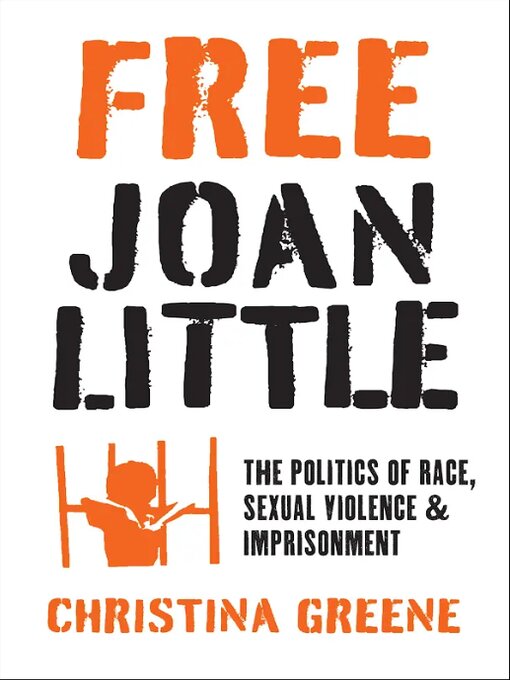-
Description
-
Details
Through the prism of Little's rape-murder trial and the Free Joan Little campaign, Christina Greene explores the intersecting histories of African American women, mass incarceration, sexual violence, and social movements of the 1970s and 1980s.

Kindle Book
- Release date: October 14, 2024
OverDrive Read
- Release date: October 14, 2024
Open EPUB ebook
- File size: 10239 KB
- Release date: October 14, 2024
Formats
Kindle Book
OverDrive Read
Open EPUB ebook
subjects
Languages
English
Through the prism of Little's rape-murder trial and the Free Joan Little campaign, Christina Greene explores the intersecting histories of African American women, mass incarceration, sexual violence, and social movements of the 1970s and 1980s.

-
Details
Publisher:
The University of North Carolina Press
Kindle Book
Release date: October 14, 2024
OverDrive Read
Release date: October 14, 2024
Open EPUB ebook
File size: 10239 KB
Release date: October 14, 2024
-
Creators
- Christina Greene - Author
-
Formats
Kindle Book
OverDrive Read
Open EPUB ebook
-
Languages
English
Why is availability limited?
×Availability can change throughout the month based on the library's budget. You can still place a hold on the title, and your hold will be automatically filled as soon as the title is available again.
The Kindle Book format for this title is not supported on:
×Read-along ebook
×The OverDrive Read format of this ebook has professional narration that plays while you read in your browser. Learn more here.
